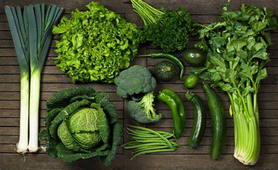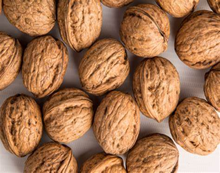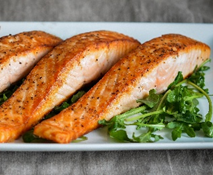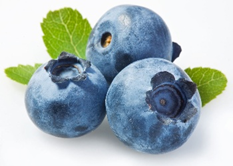Feed Your Brain: The MIND Diet and Foods That Are Proven to Benefit Brain Health
- PAmela Sloop
- Jun 1, 2025
- 5 min read
Updated: Aug 5, 2025
In my daily practice as a Nurse Practitioner in total women’s health, I talk to a lot of senior women about issues concerning menopause and aging. One of the common problems that we discuss is the brain fog that sometimes comes along with perimenopause and menopause, as well as memory and cognitive concerns that may happen with age. There are many things that factor into brain health such as age, genetics, hormones, exercise, sleep, stress factors, social engagement and sleep patterns. Obviously, some of things we can control, and some we cannot. Diet is something we can control, and diet may play a BIG role in brain health. While there is still research to be done to scientifically link diet with actual dementia, there are indeed foods that have been scientifically proven to improve brain health. One study in 2015, which looked at the link between Alzheimer’s Disease and diet, was created by researchers at Rush University Medical Center in Chicago. The researchers put together two diets that had already been associated with the preservation of cognitive function- The Mediterranean Diet and the DASH diet. The presumption was that because these diets had positive protective effects on cardiovascular health, they then in turn helped brain health (Nutrition Source, Harvard College Online, 2025).
The traditional Mediterranean Diet consists primarily of minimally processed whole foods such as vegetables, fruits, unrefined grains, legumes, and fish. In addition, small amounts of lean meats, eggs and dairy products are allowed, as well as wine in moderation. The DASH diet puts an emphasis on fruits and vegetables, low fat dairy, whole grains nuts, and fish. It is very limited in saturated fats, red meat, sodium and sugar. Put together, the two make what they call the MIND diet (Mediterranean-DASH diet Intervention for Neurogenerative Delay). The MIND diet is heavy on plant-based foods and light on saturated fats and sweets. There are specific recommendations for “brain healthy foods” within the MIND diet as well as specific recommendations for unhealthy foods to avoid. The purpose of the MIND diet study focused on brain health, and this has been found by further studies as well, that those who follow this type of diet had a significantly lower rate of dementia. Some studies noting as much as a 53% decline in individuals who adapted this diet strictly (“Cooking Light Brain Foods: 81 Mind Boosting Recipes”, Cooking Light, 2025).
Many of the foods on the “allowed” list of the MIND diet are also foods that have been scientifically proven to health brain health on their own. Some of these include:

Leafy Green Vegetables are loaded with brain healthy things such as vitamin K, folate, lutein and beta-carotene. Spinach, collard greens, kale and broccoli are included in this group and are known to help slow cognitive decline.

Fatty Fish such as salmon, pollack, cod and canned tuna are full of healthy unsaturated fats (omega-3 fatty acids). These unsaturated fats have been linked to a reduction of beta-amyloid levels, Beta-amyloids are proteins that form clumps in the brain linked to Alzheimer’s Disease (“Foods linked to Better Brain Power, Harvard Health Online, 2024). In addition, maintaining good levels of Omega-3s helps the brain develop new cells and can help slow mental decline as we age (“5 Foods That Are Proven to Improve Brain Health”, online Newsletter, Tomah Health, 2025). If you don’t like fatty fish, other good sources of omega-3s are avocado and flax seeds.

Berries such as strawberries, blueberries and blackberries are rich in antioxidants that are believed to protect brain cells against harmful free radicals. Flavonoids which give the berries their brilliant colors are believed to improve memory, and a study by researchers at Harvard’s Brigham and Women’s Hospital found that women who ate two or more servings of berries per week delayed memory decline for up to two-and-a-half years (“Foods Linked to Better Brainpower”, Harvard Health Online, 2024).

Tea and Coffee do more than just give you a first of the morning boost. It does give you a boost and mental clarity, but caffeine also blocks receptors for a chemical called adenosine. Adenosine can block the flow of other chemicals in the brain that are linked to improved mental performance.

Whole Grains are good sources of fiber, B vitamins and antioxidants. Whole grains are known to reduce inflammation systemically and neurologically and have been associated with reduced risk of neurological disorders (“10 Brain-Boosting Foods to Enhance Neurologically Health”, Health Benefits Times, Online article, 2025).

Avocados contain vitamin E which is an antioxidant that helps protect your brain from damage caused by oxidative stress. Vitamin E has been shown to promote healthy brain aging and slow cognitive decline. In addition, researchers have found a link between the compounds in avocados and the prevention of some neurodegenerative diseases such as Alzheimer’s Disease and Parkinson’s Disease.

Turmeric is a spice used all over the world. It has very powerful antioxidant, anti-microbial, anti-aging and anti-inflammatory properties that may help fight neurodegenerative disease. Curcumin, the active compound in Turmeric can improve cerebral blood flow. While Turmeric is thought to be better absorbed with a supplement than it is through food, it can’t hurt to spice up your life and possibly boost your brain power!

Dark Chocolate contains MANY brain healthy compounds including flavonoids, caffeine and other antioxidants. Not that most of us need an excuse to eat chocolate, but research has shown that a regular intake of 85% dark chocolate
can help prevent neurodegenerative disorders such Parkinson’s Disease and Alzheimer’s Disease (“Cooking Light Brain Foods: 81 Mind Boosting Recipes”, Cooking Light, 2025).

Walnuts are a good source of protein and Omega-3 healthy fats. They are abundant in anti-inflammatory and antioxidants molecules, nonsodium minerals, vitamins and polyphenols. Polyphenols are natural chemicals found in plants that are good for maintaining brain health.
There is a lot of research and reading material that discuss brain healthy foods and ingredients. The original study, as well as other studies that followed it, have shown that the participants that had higher MIND diet scores (followed the guidelines more closely) had better cognitive function, larger total brain volume, higher memory scores, lower risk of dementia, and slower cognitive decline (“Food Linked to Better Brain Health”, Harvard Health Online, 2024). The MIND diet includes many foods known for their brain health benefits; it is also considered to be heart healthy. The MIND diet also includes a list of foods that are to be limited or avoided. There are recommendations for foods to limit or avoid include having:
· Less than 5 servings a week of pastries and sweets
· Less than 4 servings a week of red meat (including beef, pork, lamb and products made from these meats)
· Less than 1 serving a week of cheese and fried foods
· Less than 1 tablespoon a week of butter/stick margarine. Olive oil is the fat of choice if any added fat is used
There are many, many factors that may contribute to brain health. A healthy diet such as the MIND or similar diet may improve chances of preserving brain health and slowing cognitive decline and other issues that go along with aging. It is something that people do have some control over, what you eat can play a critical role in keeping your mind sharp and healthy.








Connielester7@gmail.com